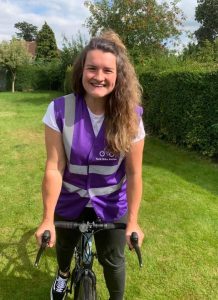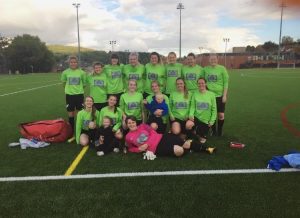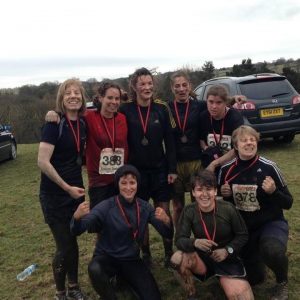Amy Murray-Evans: Whole System Approaches to Physical Activity
 Amy recently began her PhD research, bringing with her a wealth of experience from her roles as a Physiotherapist in stroke and neurology, a Population Health Fellow, and a role with a cycling charity focused on broadening participation.
Amy recently began her PhD research, bringing with her a wealth of experience from her roles as a Physiotherapist in stroke and neurology, a Population Health Fellow, and a role with a cycling charity focused on broadening participation.
What is your PhD research focused on?
It is early days however working in co-production with the Move More core team, stakeholders at all levels, and community and individual end users, the proposal is to focus this project on understanding the impact of Move More from community perspectives. I am considering participatory evaluation approaches. Specifically, while positioning my research within broader evaluation work being done through the Advanced Wellbeing Research Centre, I would like to focus on the research question: How can we evaluate what is happening within the Move More system from the perspective of individuals and communities in Sheffield?
Why is it an important area of study?
The growing adoption of whole system approaches rests on an acknowledgement that the problem of physical inactivity exists within a complex system – its causes are multiple, interrelated and non-linear. Directly linked to this is a rejection of conventional approaches to increasing physical activity that focus on discrete interventions in favour of more coordinated efforts to transform the ‘whole system’. In the case of Move More, the core aim is: ‘to reshape the local environment, the culture, leadership and the whole system and make movement an easy option’. Creating an evaluation framework that works for Move More can help in this place-based approach but also add to learning, such that people can take better action to achieve a population-level change in physical activity.
Tell us about your career/academic journey so far
My background encompasses work across many areas. Predominantly, I have a clinical background working as a Physiotherapist in Stroke and Neurology. I have worked in a local ‘place-based approach’ as a Population Health Fellow. I have also worked for a cycling charity for several years looking at broadening participation. For me, this PhD represents the opportunity to bring my knowledge and experience of working on health and health inequalities in community-facing and strategic settings together. I am so excited about working on this project in Sheffield.
 Why did you choose to study with the AWRC?
Why did you choose to study with the AWRC?
This shift in my career was inspired by Move More and strategies like it, and an appreciation of their ambition to transform people’s lives at a population scale and through an approach that acknowledges both the complexities of our world and the specificities of the places we live. I am passionate about tackling health inequalities and putting people at the heart of any system wanting to effect change. The AWRC and the Move More team have a great ethos about putting the people of Sheffield at the heart of their work.
What’s it like being a PhD colocator at AWRC? What do you enjoy most?
It is still all really new but in my first few weeks, everyone has been really welcoming and friendly. The facilities are amazing – the technology (none of which I understand!) looks fantastic. And I love the cycle out there from the city centre.
Finally, What do you hope to do after your PhD?
To be decided! Hopefully, further research and working as part of teams on the whole system/place-based approaches to physical activity. Ideally in Sheffield!
Many thanks for speaking to us, Amy! We wish you the best of luck with your studies.
Follow Amy on Twitter
